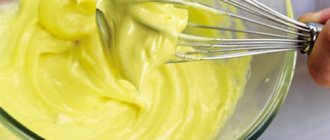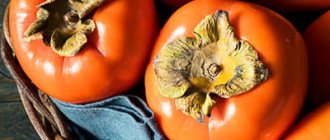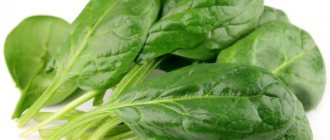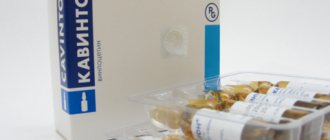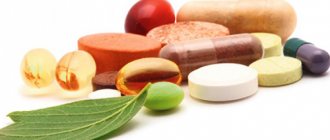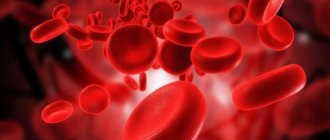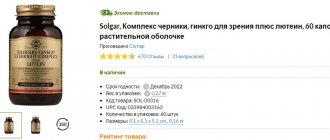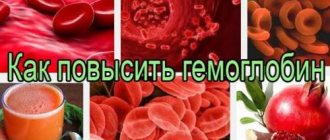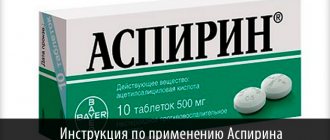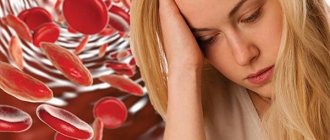Causes of viscous blood
Human blood can lose its liquid part (water) for the following reasons:
Insufficient supply of water to the blood
The recommended amount of clean water consumption (excluding soups, juices, tea and soda) is 1.5-2 liters. Many diets, which often involve giving up salt (salt retains fluid in the body), and all kinds of drying of the body lead to loss of fluid primarily in the blood. Hot climates, excessive coffee consumption (the drink removes more fluid), severe physical activity, and vomiting/diarrhea also lead to dehydration.
Vitamin deficiency
Lack of vit. C, B6 and E, often found during pregnancy and malnutrition, leads to an increase in blood clotting factors and an increase in estrogens, which provoke blood clots.
Errors in nutrition
Foods rich in fat and sugar increase blood viscosity.
Poor digestion
Intestinal diseases and enzymatic deficiency due to diseases of the liver and pancreas lead to acidification of the body and thickening of the liquid medium.
Stress
Constant nervous tension literally “washes” vitamins and microelements from the body and causes a persistent narrowing of the vascular walls, thereby increasing blood pressure.
Bad habits
A simple truth: alcohol leads to severe dehydration, and the need for vitamins when smoking increases several times.
Internal pathology
With varicose veins, diabetes, high cholesterol, high prothrombin, the load on the heart increases due to a decrease in the contractility of the vessel walls, and formed blood cells (erythrocytes) begin to stick together. The same picture is observed with high hemoglobin, which can be caused by pathology of the spleen and other diseases.
Herbal blood thinning recipes
In addition to knowing which herbs thin the blood against blood clots, it is important to know how to use them correctly. Below are some recipes for making healing teas.
Collection No. 1
Make a mixture of crushed wormwood, mint and fireweed. Pour 1 tablespoon into 1 liter of boiling water and leave for a few minutes. Drink 1/2 cup of tea before meals.
Collection No. 2
Mix equal parts of arnica, sweet clover, wormwood, and meadowsweet. Preparation and consumption are the same as in the previous recipe.
Ginger tea with honey
You will need:
- 1 liter of water;
- 2 teaspoons grated ginger (you can use more, depending on how strong the tea you want);
- 2 tablespoons honey;
- juice of 1 lemon;
- 3 cloves;
- cinnamon stick for decoration;
- cane sugar (optional).
Bring the water to a boil, add ginger, cloves and a piece of cinnamon. Cook for 5 minutes. Once cooked, remove the spice bits and pour into the kettle. Leave to cool slightly, add honey and lemon juice. Add cane sugar to taste and garnish with a cinnamon scroll.
Kalanchoe juice
Pick a few leaves and leave them in a cool place for a day (or in the refrigerator on the bottom shelf). Then grind in a blender or meat grinder and leave again in the cold for a day. Drain the juice, take 1 tablespoon per day.
Chestnut tincture
The peel is used to prepare the medicine. Pour 50 grams of raw material into 1/2 liter of vodka and leave for 7 days. Drain and take 30 drops daily.
Sweet clover tea
To prepare, pour 2 teaspoons of herbs and 200 ml of boiling water. Leave for 20 minutes and strain. Drink a third of a glass 3 times daily.
Willow bark tea
To prepare the drink you will need 1 teaspoon of crushed bark. Pour boiling water over the raw material and leave to steep for 30 minutes. Drink in small sips 2 times a day.
Ginkgo biloba tincture
Pour 50 grams of dried leaves into 1/2 liter of vodka. Leave it for a week. Drain and take 1 teaspoon 3 times a day.
Mint tea
Pour 5 mint leaves with a glass of boiling water and leave to steep for 5 minutes. Use honey or healthy cane sugar to sweeten your tea.
Licorice tea
To prepare the drink you will need 1 teaspoon of finely chopped licorice (licorice). Pour boiling water over the raw material and leave to steep for 15 minutes. Drink in small sips 2 times a day.
Why is thick blood dangerous?
High blood viscosity levels, initially manifested by memory weakness, drowsiness, and apathy, are a dangerous signal and a reason to be examined. Lack of attention to the problem can result in:
- worsening vascular pathology (thrombophlebitis, hypertensive crisis);
- heart attack;
- stroke;
- thromboembolism (pulmonary artery thrombosis, etc.).
Important! Modern scientists associate the development of cancer with poor blood circulation of individual tissues, often caused by viscous blood.
Fully or partially limited products
To get rid of the problem, you will have to completely stop drinking alcohol, they severely dehydrate and, as a result, thicken the blood. In addition, you will have to give up animal fats, butter and cream. They greatly increase cholesterol levels. Rich soups, especially those made from pork, are also dangerous.
Try to completely give up any baked goods and sweets, or, as a last resort, reduce their quantity to a minimum. Better eat fruits and berries. It is better to replace sugar with honey.
Smoked foods and sausage are real enemies. Also do not eat canned foods or pickled foods. It is best to avoid eating potatoes, bananas, lentils, walnuts and mangoes. These foods contain large amounts of vitamin K, which stimulates blood clotting.
How to thin thick blood?
Some medications, medicinal herbs and foods have blood-thinning properties.
Medications
Their basis is acetylsalicylic acid. The drugs are used in small doses for prophylaxis and massively at high levels of blood viscosity. Use:
- Aspirin - once a day, 1/4 tablet. while eating.
- Cardiomagnyl (75 mg - prophylactic dose, 150 mg - therapeutic dose).
- Aspirin-cardio.
- Aspecard, etc.
Admission rules:
- course treatment (occasional use will not give results);
- taken with meals;
- the best time is in the evening;
- regular laboratory monitoring of coagulation indicators.
Important! All drugs with acetylsalicylic acid irritate the stomach and are contraindicated for ulcerative changes in the gastrointestinal tract. The dosage and duration of taking blood thinning drugs is discussed with your doctor.
Blood thinners
List of blood thinning products:
- berries, fruits - figs, all citrus fruits (allergies are possible!), pomegranate, grapes (raisins), cranberries, blueberries, apricots, lingonberries, plums, cherries, mulberries;
- vegetables - beets, garlic, tomatoes, onions, cabbage (not white cabbage);
- cereals - oatmeal;
- sour milk products, eggs;
- spices and seasonings - apple cider vinegar, ginger, paprika, cinnamon, turmeric, oregano, mint;
- sunflower seeds, sprouted wheat;
- honey (in limited quantities, better in combination with lemon);
- cold-pressed oil (olive and especially flaxseed);
- seafood rich in omega-3 (mackerel, herring, shellfish, seaweed, shrimp);
- green tea, chicory drinks;
- chocolate, cocoa.
Important! There is conflicting data on the effects of red wine on the blood. Although the drink is classified as alcoholic, its diluting properties have been noted. However, when consuming it, balance is advisable.
Medicinal plants
Plants are used to thin the blood in various forms (decoctions, tinctures):
- horse chestnut (drops are indicated for pregnant women);
- white willow (its bark), sweet clover - the most active;
- aloe;
- Kalanchoe (house plant "doctor");
- cinquefoil (very poisonous!);
- peony root;
- dry nettle.
Important! Excessive blood thinning with diet and the use of herbs while taking medications is fraught with various bleedings. The first sign of excessive liquefaction is nosebleeds. The nuances of nutrition and the use of traditional methods are discussed with the doctor.
Herbs and spices to thin the blood
Peppermint
This aromatic plant is widely used in folk medicine. It is well known that mint soothes the gastrointestinal tract. In addition, it helps prevent abnormal platelet aggregation by producing salicylates that affect blood clotting.
Oregano
The plant is used as a spice in cooking, but it can be used as a medicine due to its expressive medicinal effects. Important qualities of oregano include its ability to influence blood thickness.
Paprika
This is a warming spice that helps support and speed up metabolism. Traditional medicine has been using it for many years. An important role is played by salicylates, present in paprika and useful for thinning the blood, reducing vascular disease and preventing thrombosis.
Cayenne pepper
The active ingredient in cayenne pepper, capsaicin, has a number of health benefits, including reducing the risk of blood clots.
Chicory
Thanks to the inulin contained in chicory, it is useful for natural blood thinning with absolutely no unwanted side effects.
Liquorice
Liquorice has been known for a long time as a preventive and therapeutic agent against thrombosis. Thanks to salicylates, it is useful for natural blood thinning, without any side effects.
Sweet clover
Sweet clover also has blood-thinning properties. We can thank the plant’s active substance, dicumarol, for this.
Meadowsweet
This plant contains natural salicylic acid, due to which it exhibits effects similar to Aspirin or Acylpirin (the drug was originally made from this herb).
Chestnut
Horse chestnut improves the quality of blood vessels, reduces pressure in them, promotes blood thinning and therefore prevents the risk of thrombosis.
White willow bark
The blood-thinning effect is due to the salicyl present in the bark, due to which white willow bark has an effect similar to chestnut.
Ginkgo biloba
Herbs that reduce blood clotting and help strengthen blood vessel walls include ginkgo biloba, a long-used natural remedy with anti-inflammatory effects and beneficial effects on blood thickness.
There are many other herbs that thin the blood. These include the following plants:
- thyme;
- Red clover;
- safflower (flowers);
- peony root;
- raspberry, cherry and currant leaves;
- lungwort;
- Kalanchoe;
- wild Rose;
- mulberry roots;
- hawthorn.
Subscribe to our Yandex Zen channel!
What thickens the blood?
An emphasis on blood thinning nutrition involves eliminating/limiting foods that increase viscosity:
- sweet;
- fat;
- alcohol;
- smoked meats;
- buckwheat;
- bananas;
- potato;
- soda;
- coffee, strong brewed tea;
- dill, parsley, spinach;
- walnuts;
- coriander.
Some herbs can significantly increase blood viscosity:
- St. John's wort;
- corn silk;
- yarrow;
- fresh nettle;
- motherwort, valerian;
- tansy;
- knotweed;
- burdock;
- horsetail;
- burnet;
- shepherd's purse;
- needles.
It is quite simple to influence an overestimated blood viscosity at home. For small changes, it is enough to increase the daily amount of water consumed and limit the use of products that increase viscosity. However, in case of serious deviations, drug correction, the use of plants and nutritional nuances are discussed with the doctor. Any person should remember: with any treatment, especially those affecting blood characteristics, there must be reasonable balance.
Anticoagulant therapy during pregnancy
During gestation, a woman simply needs products that effectively thin the blood. You will have to exclude canned food, sausages, smoked, fried and salty foods from your diet. The blood is also thickened by a deficiency of foods that contain a lot of useful substances. These include:
- porridge (buckwheat, oatmeal);
- cocoa powder;
- dark chocolate;
- sunflower seeds;
- unrefined vegetable oil;
- Apple vinegar;
- medicinal herbs (white willow bark, flowers and leaves of sweet clover, Kalanchoe);
- Dietary supplements.
Pregnant women should not forget about berries and fruits. They reduce the level of bad cholesterol, thin the plasma, prevent the formation of blood clots and strengthen the immune system. It is better for pregnant women to give preference to fruits:
- citrus fruits;
- plums;
- dried apples;
- apricots;
- peaches;
- pears.
The following berries prevent the formation of blood clots and enrich the body with vitamins B, K, and C:
- cranberry;
- raspberries
- currant;
- cowberry;
- red and chokeberry;
- strawberry;
- gooseberry;
- viburnum;
- rose hip;
- blueberry;
- sea buckthorn.
They can be consumed both raw and in the form of fruit drinks.
Why reduce blood viscosity?
Increased blood viscosity occurs for various reasons, the most common of which are:
- violation of the drinking regime (drinking drinking water in small quantities);
- excessive salt intake;
- excess glucose;
- intestinal slagging;
- poor nutrition;
- vitamin deficiency.
Photo source: shutterstock.com
You can even suspect a slowdown in blood flow on your own if certain symptoms often begin to appear:
- fast fatiguability;
- memory impairment;
- irritability.
If such signs occur, it is recommended to undergo laboratory diagnostics: donate blood for analysis and do a coagulogram.
Photo source: shutterstock.com
If high blood viscosity is diagnosed, immediate treatment should be started. Any delay will negatively affect your overall health.
Thick blood provokes the formation of blood clots - harbingers of cardiovascular pathologies, including heart attack and stroke. Atherosclerosis, hypertension, intracerebral bleeding, and pulmonary artery thrombosis may also develop. Thick blood can cause death.
This is interesting! List of foods that effectively burn fat
What foods effectively thin the blood?
To normalize blood viscosity, you must take:
- a complex of vitamins that maintains the balance of lipids and blood sugar;
- minerals that normalize water-salt balance;
- amino acids that stimulate intercellular metabolic processes;
- phytoncides that improve the functioning of the gastrointestinal tract;
- fiber, which has a beneficial effect on intestinal function.
Photo source: shutterstock.com
The doctor can prescribe effective medications to eliminate blood viscosity. However, in the initial stages of such a problem, a person can independently create the conditions for healing. To do this, you just need to adjust your diet and introduce anticoagulant products into your daily menu that prevent the formation of blood clots.
What foods effectively thin the blood? Let's look at the full list of vegetables, fruits, berries, seasonings and drinks that traditional medicine offers.
Garlic
Photo source: shutterstock.com
Garlic contains several active phytoncides. They have an effective healing effect on the cardiovascular system. Garlic not only helps eliminate blood viscosity, but also helps neutralize a wide range of toxins, thereby preventing liver failure.
Black currant
Photo source: shutterstock.com
Any variety of currant contains vitamin C. However, it is the black berry that is richest in it more than other varieties. In addition, not only the fruits, but also the leaves of currants are characterized by a high content of vitamin C. You can prepare a tasty and healthy decoction from them.
On a note! Due to the content of elements such as copper, sulfur, and silver, black currant can increase vascular tone and also strengthen the heart muscle.
Fatty fish
Many people have heard about the benefits of omega-3 fatty acids for human health. The brain especially needs them. When consuming products containing them, metabolic functions between cell membranes are activated. Such positive changes prevent the occurrence of thrombosis.
Photo source: shutterstock.com
You can get the recommended amount of omega-3 by consuming fish oil. It is sold at any pharmacy. But true fish connoisseurs can do without tablets and capsules.
Saturated with valuable omega-3 fatty acids:
- salmon;
- trout;
- salmon;
- herring;
- mackerel.
By eating fish, you can normalize blood viscosity and reduce cholesterol levels in a short time.
Ginger
Photo source: shutterstock.com
Ginger perfectly normalizes blood circulation. It is considered one of the best natural blood thinners. It lowers blood pressure and also ensures normal blood flow. It is important to consider that consuming ginger in a minimal dosage can only have a preventive effect, without eliminating blood viscosity.
Nuts and seeds
Seeds and nuts are valued due to the content of healthy resins, essential and vegetable oils. When consumed, proteins and carbohydrates are absorbed more effectively and the growth of fat cells is prevented.
Photo source: shutterstock.com
The following nuts are considered the most useful:
- walnut;
- pistachios;
- almond.
It is better to avoid peanuts, as they contain a huge amount of complex fats and proteins. If we highlight the most useful seeds, then the leading positions will be occupied by dill, poppy and sunflower.
Cayenne pepper
Photo source: shutterstock.com
This pepper contains capsaicin, an amino acid that promotes effective blood thinning. It also prevents the occurrence of blood clots. In addition, it is recommended to use cayenne pepper to strengthen the walls of blood vessels. However, this product is contraindicated for those who have stomach problems.
This is interesting! The benefits of lard and why women should include it in their diet
Honey and propolis
The list of the most effective products that have a beneficial effect on the state of the circulatory system includes honey and some other bee products. Their value is explained by the high content of salts, minerals and metals necessary to maintain good health.
Photo source: shutterstock.com
Honey is 1/3 water and contains no fat. But the carbohydrates contained in the composition can only slightly increase blood sugar levels, since they are represented by fructose, which is easily absorbed by the body. Consumption of propolis helps strengthen the immune system, as well as effectively remove toxins.
Linseed oil
Photo source: shutterstock.com
Flaxseed oil is another source of omega-3 fatty acids. Among other plant products, it is considered the most useful. When using flaxseed oil, it is important to know that it is not suitable for frying, as it releases carcinogens when heated.
Mustard
Photo source: shutterstock.com
Mustard contains omega-3 acids and vitamin B6, which provide better than aspirin:
- decreased blood viscosity;
- cleansing the circulatory system;
- strengthening blood vessels.
It is for this reason that doctors recommend that people who are predisposed to blood clots more often consume mustard in the form of a paste or add its seeds to dishes.
Turmeric
Photo source: shutterstock.com
When asked what foods effectively thin the blood, doctors advise consuming certain spices more often. For example, turmeric. It actively promotes blood thinning and purification. With the systematic addition of this spice to the diet, it is possible to:
- activate metabolism;
- improve digestion;
- have a beneficial effect on skin condition.
This is interesting! The benefits and harms of broccoli for the female body
What foods thicken the blood
Along with useful products that have a preventive or therapeutic effect on the circulatory system, there are also those that doctors prohibit people with thick blood from consuming.
Photo source: shutterstock.com
These include:
- bakery products;
- cakes;
- canned food;
- sausages;
- dairy products;
- milk.
It is also not recommended to consume foods that contain large amounts of vitamin K. It is this that provokes increased blood clotting.
Summarize
If you know which foods thin the blood and listen to the recommendations regarding their use, you can improve the condition of the circulatory system without the use of pills and maintain good health for a long time.

